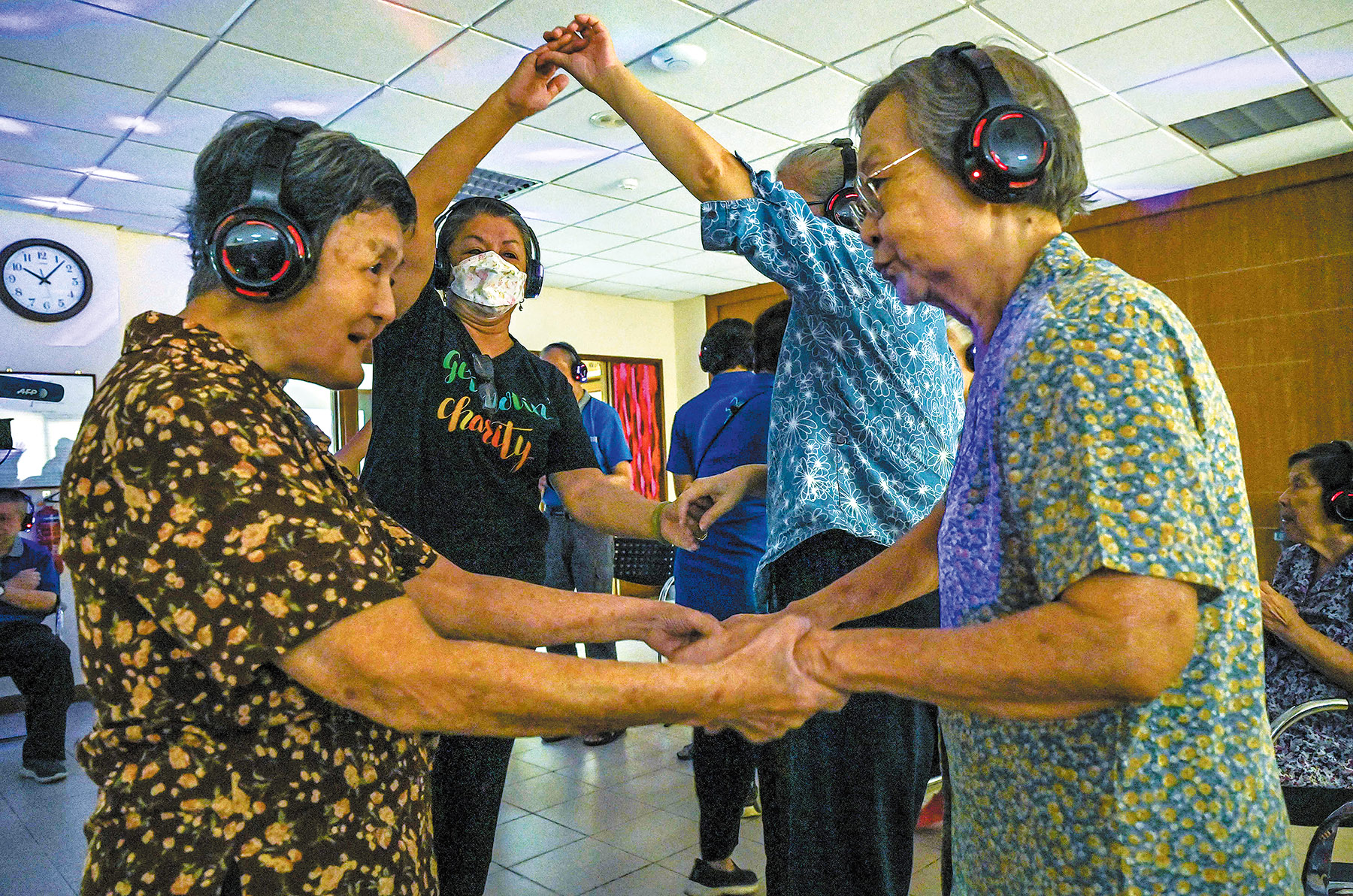Experts urge ASEAN countries to find ways to meet needs of elderly population

Editor's note: In this weekly feature China Daily gives voice to Asia and its people. The stories presented come mainly from the Asia News Network (ANN), of which China Daily is among its 20 leading titles.
When Malaysia last chaired ASEAN a decade ago, there were 39.3 million people aged 65 and above in Southeast Asia.
The number has since grown to 56.2 million according to the United Nations' population estimates, reflecting rapid growth in ASEAN's population of seniors.
Experts say the demographic trend, driven by falling fertility rates and rising life expectancy, is putting pressure on ASEAN member countries to quickly adapt infrastructure and services to meet the increasing needs of the elderly.
"It is in ASEAN's best interest that older persons embrace healthy, active and productive aging as delayed onset of diseases, disabilities or frailty means the elderly are able to keep contributing to their own well-being," said Chai Sen Tyng, a demographer from the University of Putra Malaysia.
READ MORE: Silver lining
To prepare for the rising number of older persons, ASEAN member countries need to invest in health, education and social protection systems within a much shorter window, he said.
"We need to put in place mechanisms that will help the older population sustain themselves," he said.
Among ASEAN's 10 member countries, Thailand has the highest share of older persons at 13.4 percent of its population as of 2023, according to figures from the ASEAN Statistical Highlights 2024.
Singapore is second at 12.1 percent with Vietnam third at 9.2 percent.
According to a 2023 ASEAN Secretariat study titled "Old Age Poverty and Active Ageing in ASEAN: Trends and Opportunities", the region is aging faster than many developed countries.
ASEAN figures also show that between 2016 and 2022, the elderly population in the region grew more than four times faster than the region's total population.
In 2015, ASEAN adopted the Kuala Lumpur Declaration on Ageing during the tenure of Malaysia's chairmanship of the regional body.
The declaration recognized the growing proportion of older persons in the population and called for health and social support systems to meet the challenge.
It also recommended actions to promote healthy, active and productive aging, seeking to strengthen older persons and the support from their families.
Associate Professor Tey Nai Peng from the University of Malaya said that in addition to the declaration, ASEAN member states have also formulated national policies to support older persons, including efforts to expand pension coverage.
"However, challenges remain, as coverage rates and benefit adequacy vary across countries," he said.
Use of technology
Despite the challenges, Tey said ASEAN countries can learn from each other in adopting effective policies.
In Malaysia, cities like Penang Island and Sibu have been recognized by the World Health Organization's global network for age-friendly cities and communities.
The network aims to foster age-friendly community to promote and strengthen healthy aging.
"The integration of technology designed to address the specific needs of the elderly is being explored in these cities to support independent living and reduce the strain on family caregivers," Tey said.
Singapore is another example. Tey said the island nation provides its elderly with many incentives for active aging.
"Programs like the active aging program or active aging centers encourage seniors to stay healthy and engaged through lifelong learning and community activities.
ALSO READ: Aging together
"Older adults in Singapore are notably more actively engaged in life compared to their peers in neighboring countries," he said, noting Singapore has the highest retirement age among ASEAN nations, at 64 by 2026.
He said the reemployment age will rise from 68 to 69, reflecting Singapore's proactive approach to fostering a longer and more fulfilling workforce participation for older individuals.
Singapore has also developed innovative retirement income schemes and care programs to support its aging population.
"Initiatives like the Central Provident Fund Life scheme provide financial security for retirees, while the Silver Support Scheme provides continuing support for their elderly who had low incomes during their working years."
Tey cited Thailand as another example, saying the country has implemented universal health coverage programs to benefit the elderly, improving their access to essential health services.
"Thailand also established a strong network of village health volunteers to provide basic health services and support for older adults in rural areas.
"The healthcare system integrates aging services into broader public health programs," Tey said.


